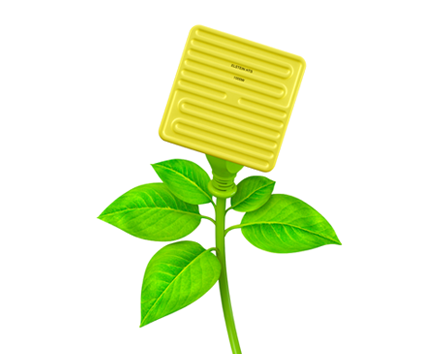Green Heating

Energy
Each year approximately 500,000 ceramic IR heaters are commissioned that could but do not have energy-saving features (they are without insulation). An additional 500,000 non-ceramic IR heaters could be potentially energy efficient.
Assuming each heating element runs on an average of 400 watts, this means an energy consumption of 400,000 kW or 400,000 kWh. With an average running time of only 8 hours per day and 280 days per year, annual energy consumption amounts to 896,000 MWh or 896 GWh.
Environment
If a coal power plant for example produces this energy 1,200 tons of CO2 are emitted each day.
The goal, of course, is to reduce this figure.
Elstein-Werk's energy-efficient products help cut energy consumption and therefore CO2 emissions.
They produce no light and transform highly-efficient the electrical energy that is fed to them, into heat.
A heating system equipped with a conventional IR heater is approximately 60 % efficient. Systems equipped with heaters from the energy saving series have an increased efficiency of 15 - 20 %.
With energy savings of 15 %, for example, the daily emission of 1,200 tons of CO2 mentioned above can be reduced by 180 tons of CO2 a day.
This yearly reduction of CO2 equals the emissions of 2,000 mid-range vehicles or enough to fill 4 football fields.
Elstein products can therefore, on the basis of their energy efficiency and biocompatibility, make a sustainable contribution to environmental protection.
Costs
Saving energy also means saving money resp. increasing the unit profit at the production.
An example that illustrates this point is based on a heating panel with dimensions of 1.0 m x 1.5 m (around 40" x 60").
The heating panel contains a total of 96 ceramic heaters of conventional build (without insulation). Those 96 ceramic heaters provide a total output of 38.4 kW (individual output = 400 W) and the panel is running in heating mode for 8 hours a day and 280 days a year. The price of industrial energy in this example is EUR 0.18 (USD 0.21) per kWh on average.
The yearly cost of energy thus amounts to EUR 15,482.88 (approx. USD 18,770). If the heating elements in this heating panel are exchanged for modern ceramic heaters such as the Elstein HTS, savings of at least EUR 1,000 (approx. USD 1,200), means 15 % ./. retrofitting expenses, can be achieved just within the year of change.
Beside an immediate commercial ROI, the cost savings increase during the subsequent years, since there are no (one-time) retrofitting costs and the Elstein-typical long lifespan of the heating elements ensures permanent cost savings resp. more profitable production, and thus also does support the Kaizen principle in the sense of a CIP (continuous improvement process).
